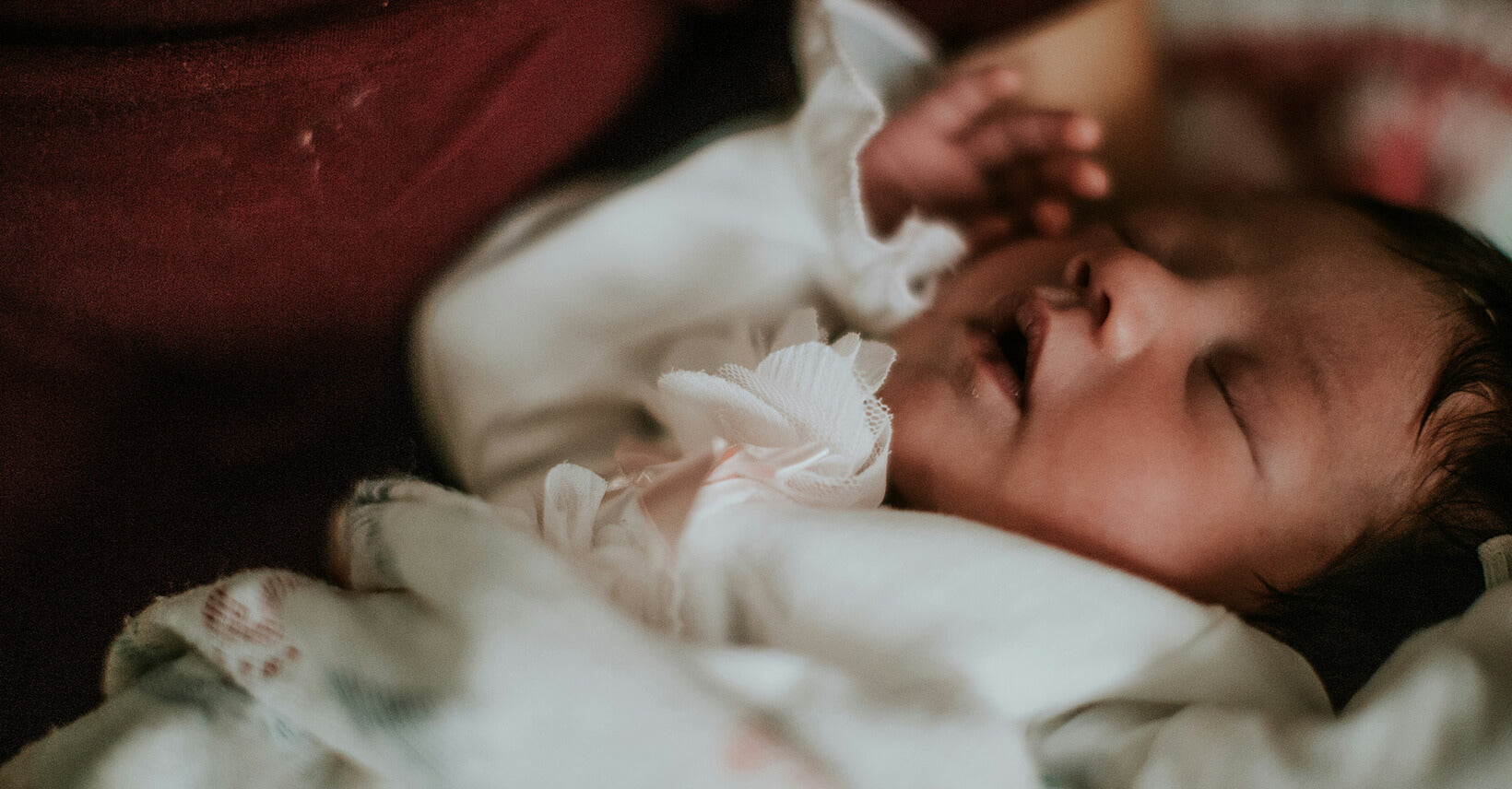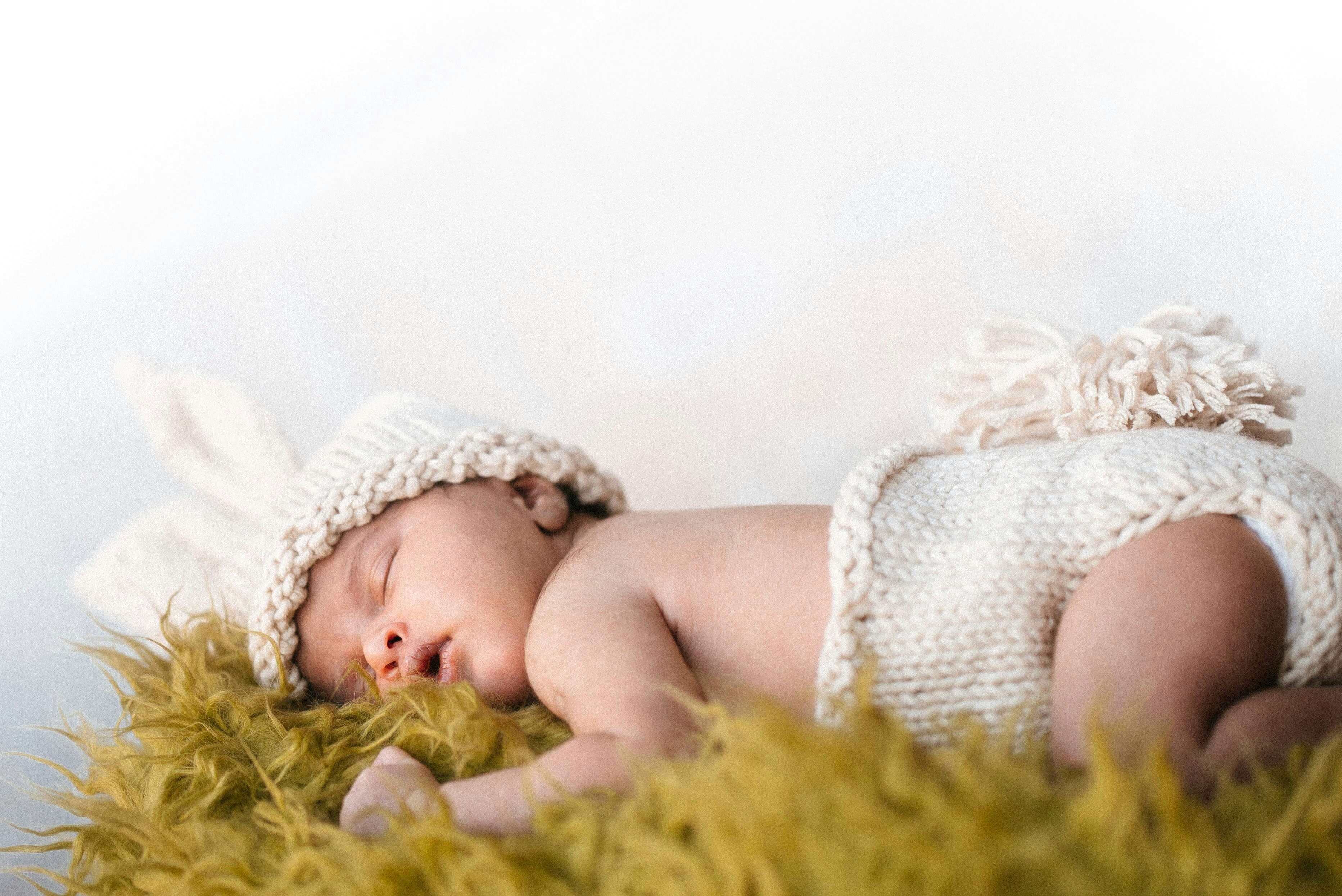


Ever noticed how babies often snooze with their mouths wide open? A curious sight that many parents ponder about. Scientists have delved into this adorable but puzzling habit, examining the various factors that might contribute to it.
A lot to uncover about why little ones sleep with their mouths open. Let's check it out together today.
Babies often sleep with their mouths open, prompting curiosity among parents and caregivers. This phenomenon can be attributed to various factors. Let's figure out some of the main ones together through the following content.
Babies can get stuffy noses from viruses, allergies, or narrow nasal passages. These conditions can lead to obstruction of the nasal airway, making it difficult for infants to breathe through their noses.
Nasal congestion can significantly impact breathing patterns in infants. When babies have stuffy noses, they may have trouble breathing through their noses. They might breathe through their mouths instead to get enough oxygen.
Infants have relatively immature nasal passages compared to older children and adults. Small passages can cause stuffy noses and make it hard for babies to breathe only through their noses while sleeping.
Additionally, infants may experience difficulty in coordinating nasal breathing because of their developmental stage. Young infants may not fully coordinate nasal breathing, leading them to breathe through their mouths during sleep.
The relationship between sleep cycles and breathing patterns in infants is complex. During certain stages of sleep, such as deep sleep or rapid eye movement (REM) sleep, infants may exhibit a preference for mouth breathing. This choice might be affected by things like muscle relaxation and changes in breathing patterns during various sleep stages.
Babies may naturally breathe through their mouths while sleeping, even if they don't have a stuffy nose. Variations in airway resistance and airflow dynamics during different stages of sleep may contribute to this behavior.

When exactly do babies start sleeping with their mouths open? The answer isn't as straightforward as one might think.
Babies may start sleeping with their mouths open as newborns, but it's more common in babies over 4 months old. Because newborns before around age 3 to 4 months haven’t developed the reflex to breathe through their mouths yet. This behavior can persist throughout infancy and even into toddlerhood in some cases.
Potential Complications If Babies Keep Sleeping With Their Mouths Open
Babies who consistently sleep with their mouths open may experience dryness in their mouth and throat. Breathing through your mouth can make your mouth and throat feel dry because it causes saliva to evaporate faster.
Dry mouth and throat can make babies uncomfortable and irritable, affecting their sleep and overall health.
Mouth breathing can bypass the natural filtration and humidification mechanisms of the nasal passages, potentially increasing the risk of respiratory infections in infants.
Breathing through your nose helps to filter out germs and irritants. This can reduce the risk of getting sick with colds, flu, or sinus infections.
Prolonged mouth breathing during sleep may have implications for dental development in infants.
Breathing through the mouth constantly can affect the position of the tongue and lips. This can lead to problems such as crooked teeth, gaps between teeth, or issues with braces.
Breathing through the mouth could affect how the face looks and how the palate and jaw develop over time.
Parents often observe their babies sleeping with their mouths open, prompting questions and concerns about their child's well-being. While occasional mouth breathing during sleep is normal for infants, persistent mouth breathing may warrant attention. So, what can parents do if their baby sleeps with their mouth open? Let's explore some steps to address this common phenomenon.
Firstly, it's essential to consider the underlying reasons why your baby sleeps with their mouth open. A blocked nose is common in babies. Use saline solution to clear their nose before bed to help them breathe better.
Additionally, ensuring a clean and dust-free sleep environment can help reduce allergens that may contribute to nasal congestion.
A doctor may recommend using a humidifier in your baby's room. This can keep the air moist and alleviate stuffy noses. It can also make it easier for your baby to breathe while sleeping. You can place a humidifier in your baby’s bedroom.
Another consideration is your baby's sleep position. Encouraging your baby to sleep on their side or back can help promote nasal breathing and reduce the likelihood of mouth breathing during sleep. However, always follow safe sleep guidelines to minimize the risk of sudden infant death syndrome (SIDS). At the same time, you can use a sleep sack to help your baby to sleep better.
If your baby breathes through their mouth often, it's best to consult a pediatrician or an ENT specialist for assistance. This can help address any potential issues with their breathing. An ENT specialist can provide specialized care for any concerns related to the nose, throat, or ears.
Seeking professional help can ensure your baby's respiratory health is properly monitored and managed. They can check your baby's nose to see if there are any problems like constant stuffiness or physical abnormalities.
In short, babies may sleep with their mouths open occasionally. However, if this happens frequently, it could indicate a potential issue that requires attention. This behavior should not be ignored and may require further investigation by a healthcare professional. To help their baby sleep well, parents should clear nasal congestion, follow safe sleep tips, and consult a doctor if necessary.
Keeping the baby comfortable and healthy during sleep is important. This will keep the baby comfortable and healthy during sleep.

Lily Hou
An expert in sleep sack design, is a valued contributor to Kaiya Baby's blog. With a strong background in baby sleep bags and maternal care, she is highly regarded for her professionalism. Lily prioritizes baby comfort and safety in her designs, using high-quality materials. Her insightful articles on sleep bags have been featured in reputable publications and have gained a significant readership. Trust Lily to help you create a comfortable and safe sleep environment for your baby, backed by her proven track record in the industry.
Leave a comment
This site is protected by hCaptcha and the hCaptcha Privacy Policy and Terms of Service apply.